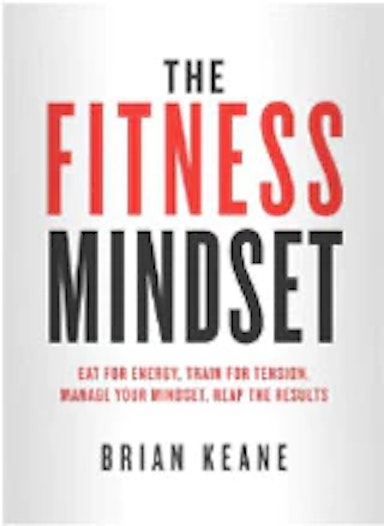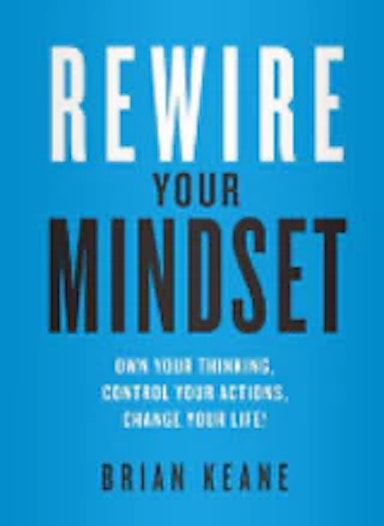Fat Loss ‘Traps’ That Could Be Halting Your Progress
- By Brian Keane
If you’ve hit a plateau with your fat loss over the past few weeks or even months, hopefully today’s tips and tricks will get things back firing on all cylinders.
There are very few things in fitness more frustrating than doing everything right (exercising more, eating less etc.) and still not getting the results you want. The reality is that in 9 out of 10 cases, if you’re not getting the results you want, you’re not doing everything right. You might think you are but that’s where the trap is. If you’ve ever said ‘screw it’ and eaten the whole tub of ice cream or skipped a workout to stay curled up in front of the fire, then you know the feeling. That generally only happens when we feel frustrated with our progress. If you’re body is responding the way you want, then your tub of ice cream is a welcome break from your normal nutritional strategy and gets structured in to your weekly or bi weekly cheat or ‘free’ meal and curling up in front of a warm fire serves as recovery from a productive day or hard workout. They become things to enjoy that help with the long term goal as opposed to distractions or temptations that move you further away from where you want to be.
I spoke in the podcast episode 186 (Nutrition FAQ’S For Fat and Weight Loss) about the basic pyramid of prioritisation where fat loss is concerned – a calorie deficit i.e. eating less calories than you burn. Although that is easier said than done and you’re body isn’t as simple as 1+1 = 2, it is the best practice to apply before you implement any of the tips below. Simply put, if you’re not losing body fat and you’re eating too much food (calories) , that’s the first thing you need to address. However, there are a few ‘traps’ that could also be halting your progress. I’ve expanded on the episode so be sure to check that out for more information on this subject.
1: Not Tracking Calories Properly:
As a fitness coach, I generally see two main problems see when it comes to tracking calories. 1) Not adjusting your calories around your lifestyle and schedule and 2) not counting everything you eat during the day.
- For simplicity, lets say you need 2,000 calories a day to stay the same weight or body composition. If you eat more than this, you gain weight. If you eat less than this, you lose weight. It is pretty basic math really. However if you have a physically active job where you are on your feet all day, that calorie requirement may need to go up. If you have a sedentary job and sit at a desk all day, that calorie requirement may need to go down. I’m not going to go into each specific job and example as its very individual to each person but knowing that your particular lifestyle will determine your caloric requirements is key for correct calculation. If you plan to play a game of tennis, you’re better to bring a racket with you than a hockey stick. If you want to lose body fat, a basic understanding of calories will support you more than just hoping you get it right.
Note: I’ll be covering calories, diet and food in much more detail in the nutrition section of my upcoming fitness seminar.
2. This point tends to hit harder with ‘secret eaters’ – or the people who at one stage in their life followed a weight watchers or slimming world style of dieting. I hate to be the one to tell you but if you track you calories for your morning breakfast bar and your salad at lunch time you also have to track the mars bar and three biscuits after dinner. If you’ve ever listened to my podcast, you may be familiar with the quote “don’t fool yourself and you’re the easiest person to fool” – if you’re constantly frustrated at your lack of progress and all you eat is ‘salad’ – there’s a good chance that either something else is wrong with your body’s assimilation of vital nutrients or you’re fooling yourself and not tracking everything you eat. By the way, there’s nothing wrong with a mars bar and ten biscuits in the evening if that’s what you want to do; however, it becomes a problem when fat loss is your primary goal. It really only comes down to one question “is what I’m about to eat more important than my long term goal?” – if you merge that with a sustainable plan that includes foods that you enjoy and factor in that mars (maybe skip the ten biscuits), then you’re really on to a winner.
2: Working At 40% In Your Workouts
True, the old adage “you cant out train a bad diet” is largely true but training the right work or with high enough intensity can really help you to shift fat faster. Whatever training program you are currently following, during the next workout ask yourself “am I really at 100% of my maximum or am I really at 40%?” – that goes for the weights you’re lifting, the sprints you’re doing or the low intensity workout on the cross trainer. If you’re able to reply to a text or hold a conversation during your workout, you’re probably not training hard enough. Keep your workouts short, intense, get in and get out- quality over quantity. If you’re at 40% effort, increase the intensity. That may look like an increase in weight on your squat or adding a level of resistance to the bike, but experiment and find your sweet spot (or ‘sweat spot’ if that’s easier to remember). Remember if its not uncomfortable enough to challenge you, its not uncomfortable enough to change you.
3: Eating Too Much Fruit:
Again, this is a whole topic in itself but it’s a trap that I regularly see so I wanted to include it. Firstly, I’m not saying fruit is inherently bad, in fact, it’s full of micro nutrients vital for optimal function. However if fat loss is your primary goal, fruits aren’t what some call ‘free food’ i.e. you can eat as much as you like – they’re still sugar. If you’re struggling to push past a plateau, maybe minimise it for a few weeks and see if that kicks your fat burning up a gear. Again, context is key. Personally, I have some of my BKF online clients using fruit when fat loss is the primary goal (it can work great for those with a sweet tooth for example) and others who don’t eat any fruit at all for the 8 weeks (they get they micro nutrients from vegetables) but it can be an easy trap to miss so I wanted to include it.
4: Not Sleeping Enough:
This is another topic I’ve covered so often in the podcast (there’s two full sleep episodes ep 42 ‘How To Get A Better Nights Sleep’ and ep 53: Sleep Devices and Supplements For Sleep). I recently did a keynote talk at Google HQ and I spoke about how nutrition is the foundation pillar of fitness and sleep was just above that, ahead of training. When we think of fat or weight loss, we normally jump to ‘diet and exercise’ first– but sleep is often a majorly overlooked aspect. I spoke in the sleep section of my book ‘The Fitness Mindset’ about all the sleep hacks I implement (the supplements, avoiding cortisol driven night time second winds, blue light etc.) and if fat loss is your goal and you’re not sleeping well every night, then I would put a large portion of my bets that this is your problem. On top of the studies showing increased insulin resistance after a poor nights sleep (meaning you wont assimilate carbohydrates as efficiently – which can lead to fat gain in the long term), and the down regulation of key hunger and satiating hormones (ghrelin and leptin)-a lack of sleep also impacts your willpower and mood. This generally leads to poorer food choices in most cases. How much sleep varies person to person and 7-9 hours tends to be the sweet spot for most. However, sleep quality is probably more important than sleep quantity so make sure if you can only get 6 hours of sleep, that its 6 uninterrupted hours. Your waistline will thank you for it.
These are generally the main traps that I see when it comes to fat loss. I’ve expanded on them more in the podcast episode (to listen click here) so if you’re struggling with a fat loss plateau, be sure to check out that episode as well.
Full Day Fitness Seminar Dublin 8th December 2018
For more information or to get your tickets click here


